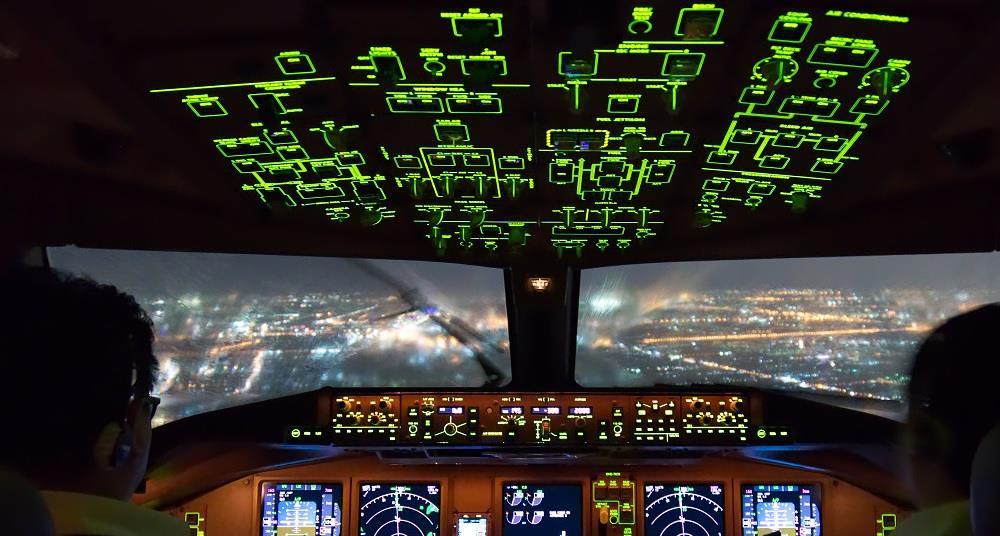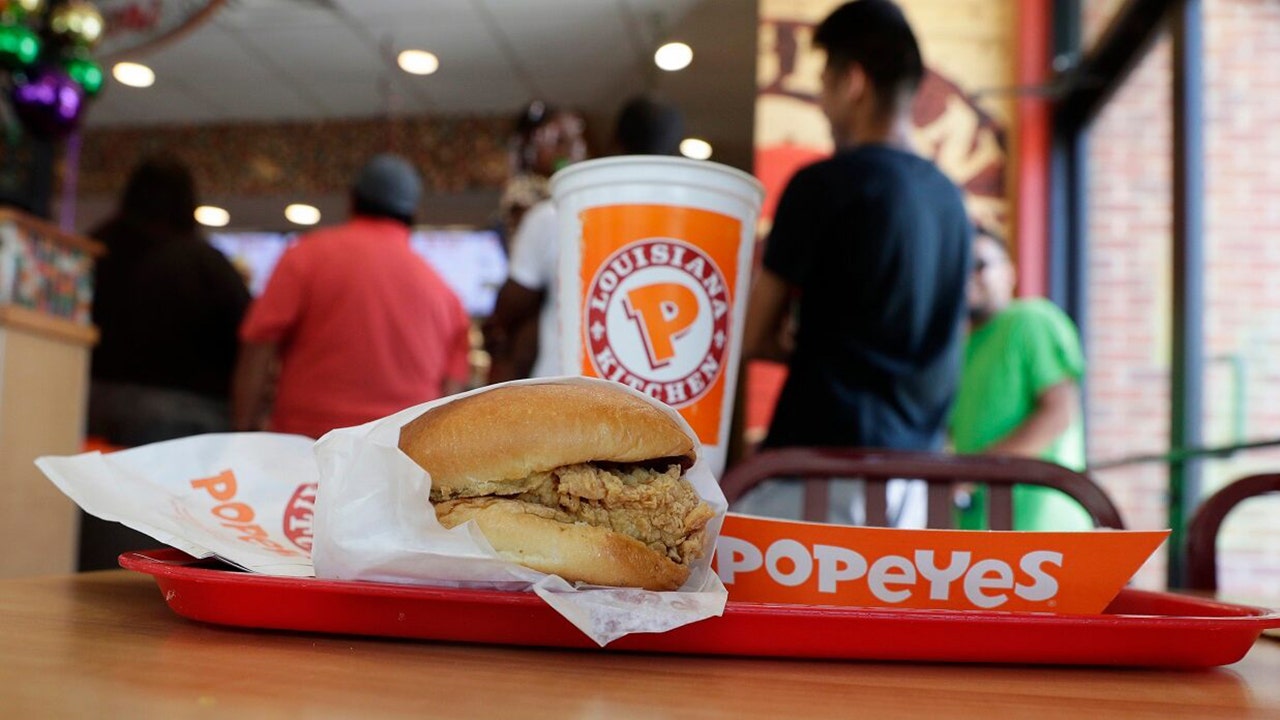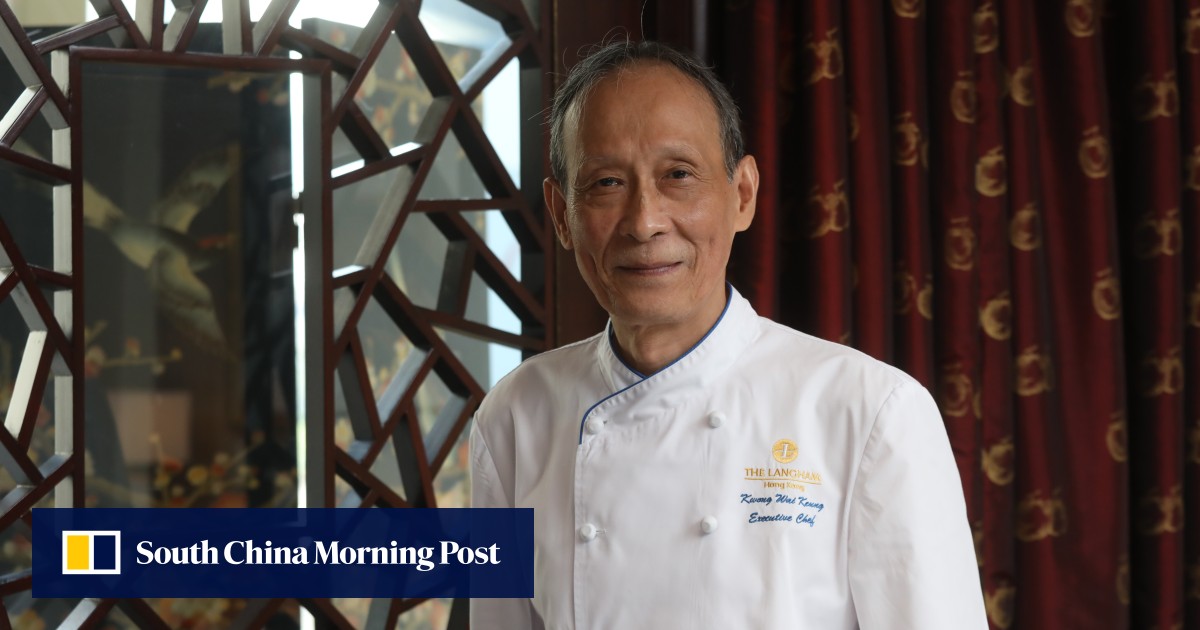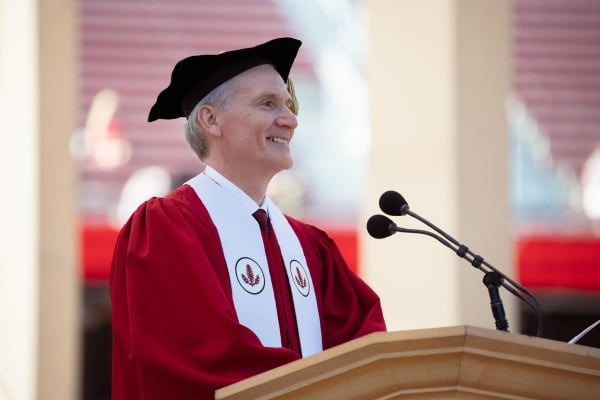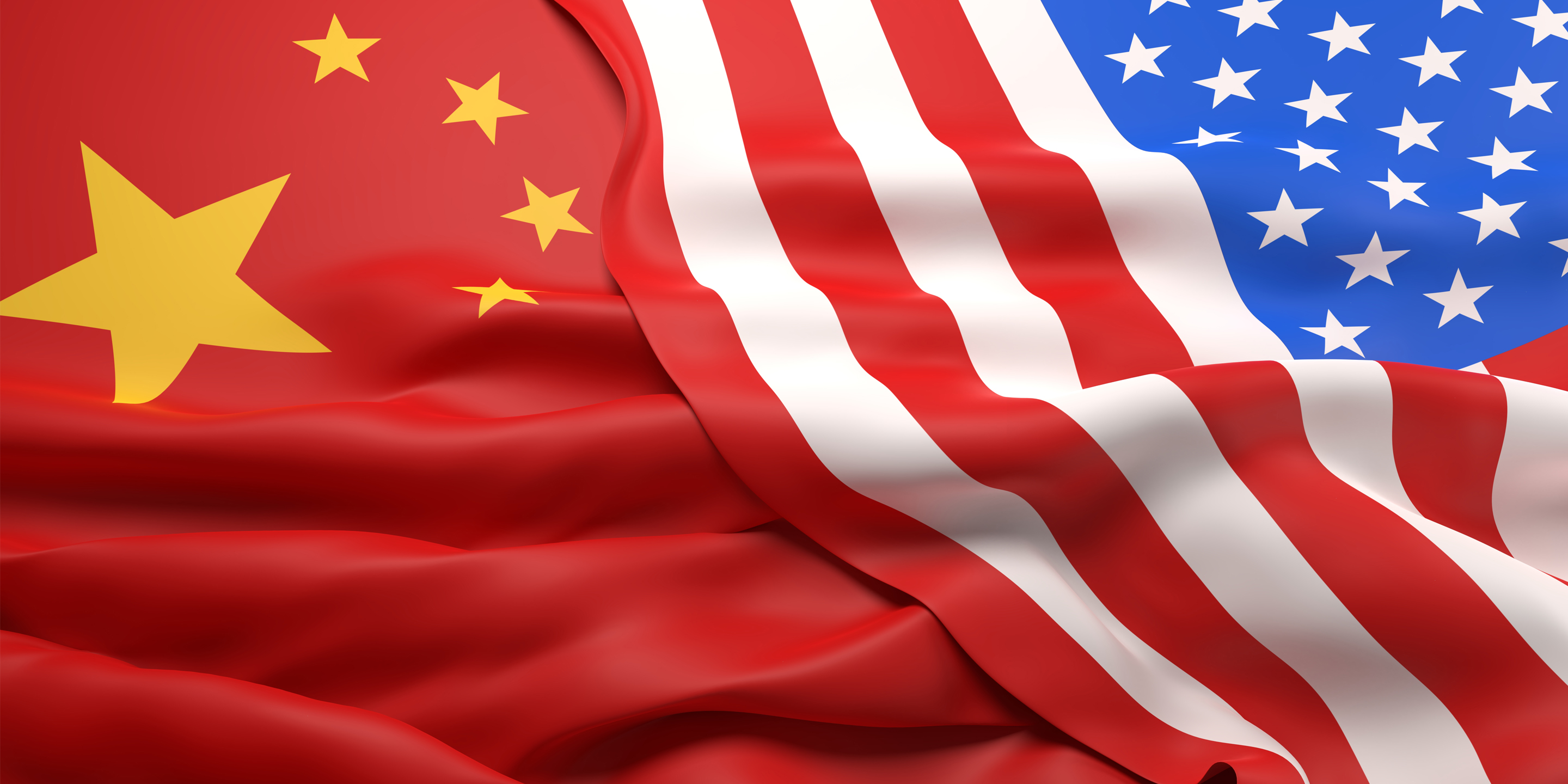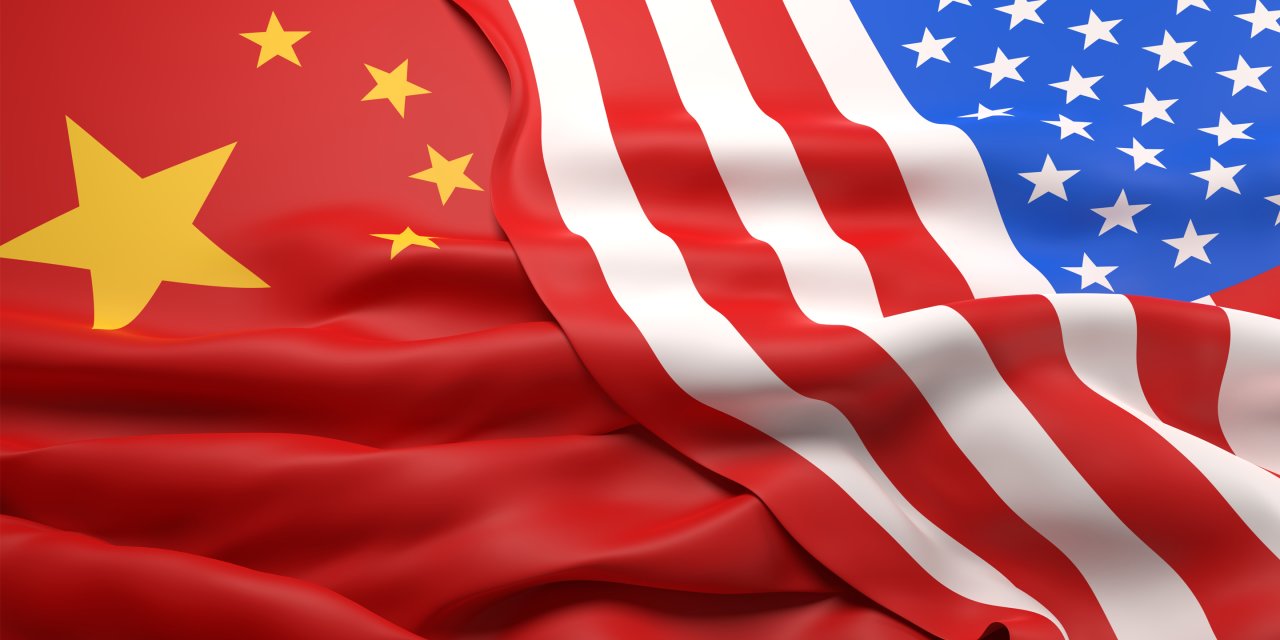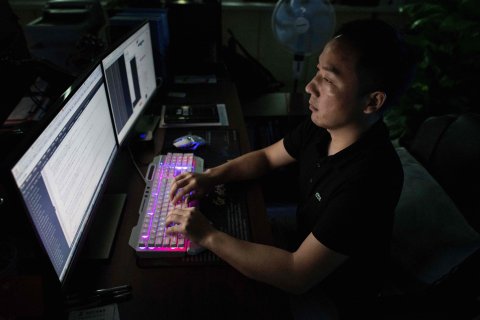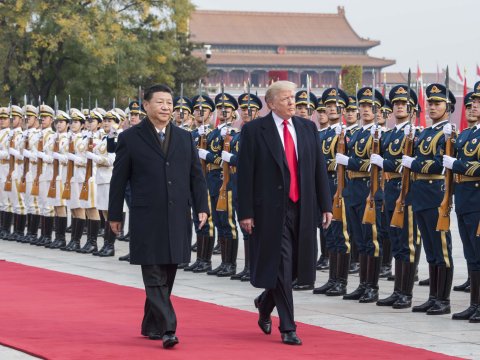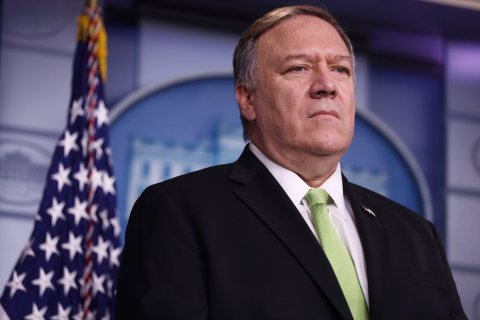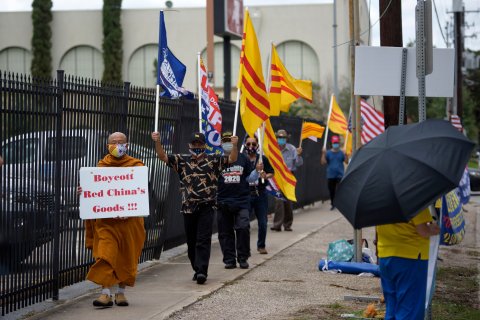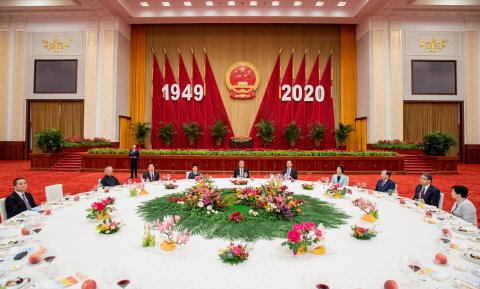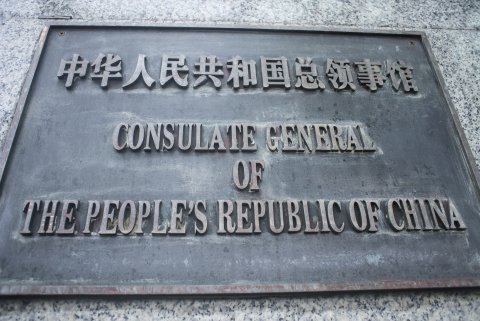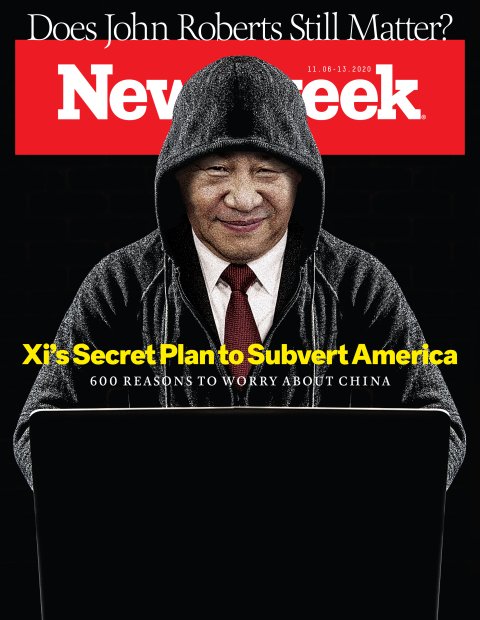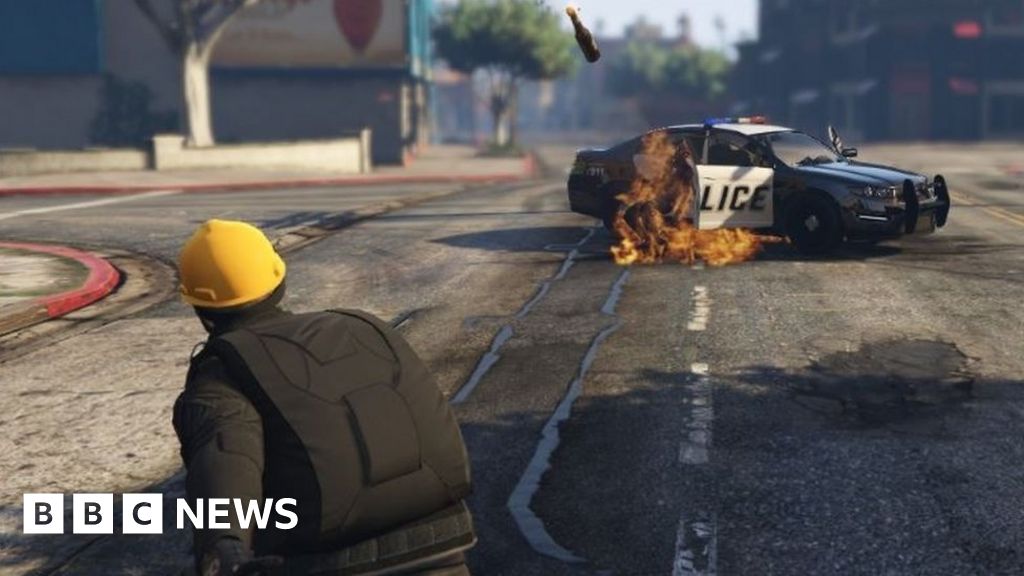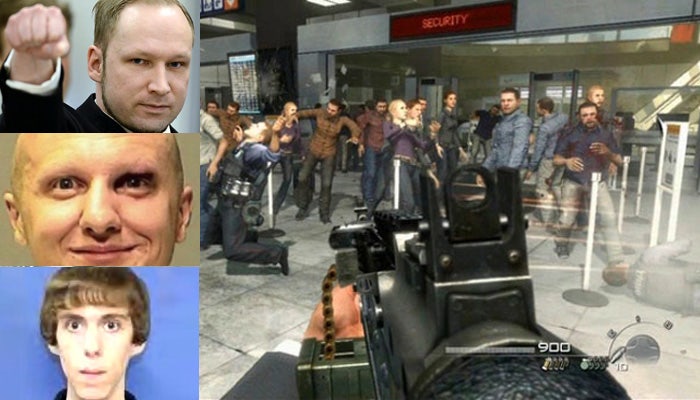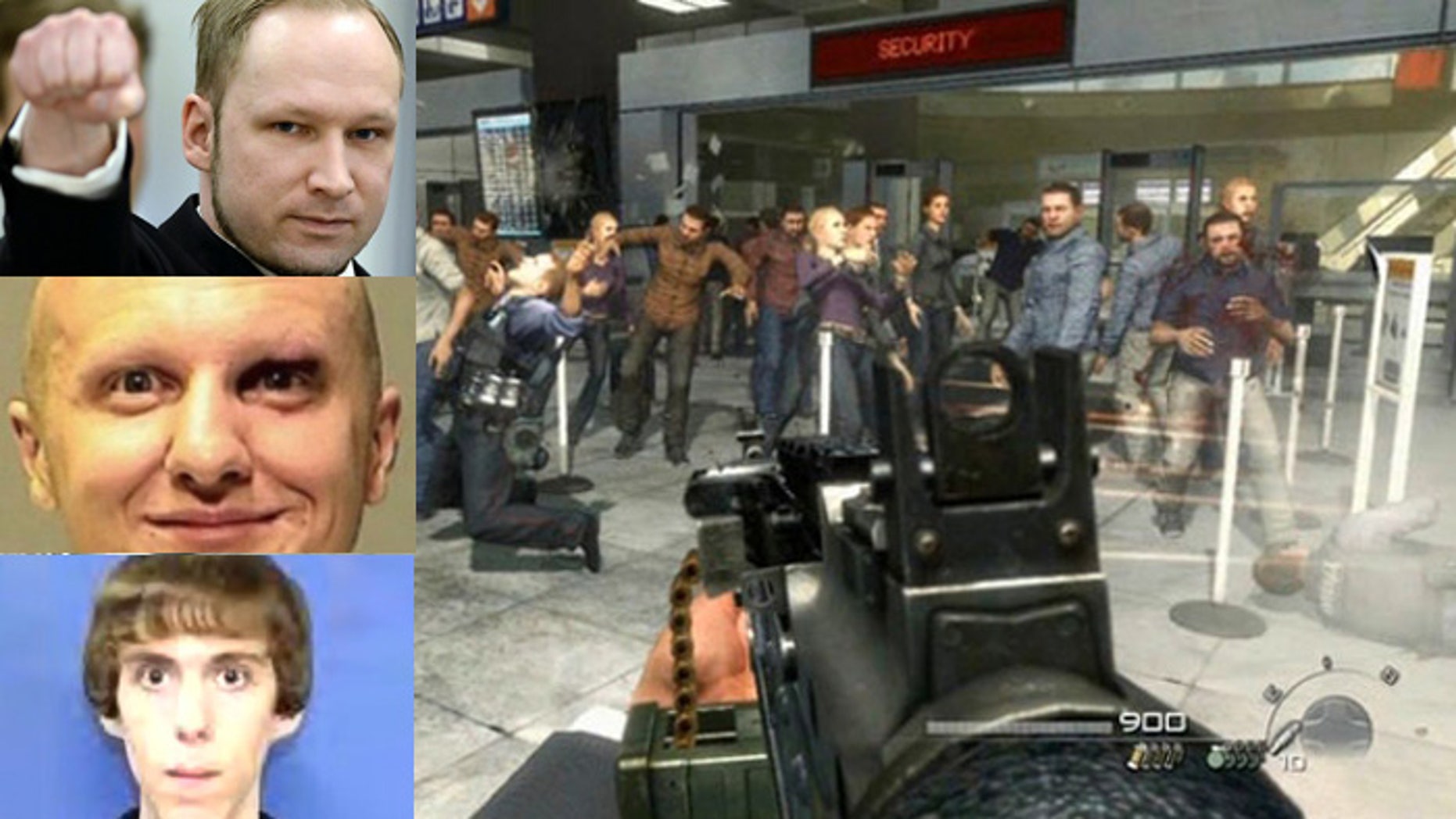Newsweek Magazine
Exclusive: 600 U.S. Groups Linked to Chinese Communist Party Influence Effort with Ambition Beyond Election
By
Didi Kirsten Tatlow / Senior Reporter, International Affairs On
10/26/20 at 7:28 AM EDT
WD Stuart/Getty
Share on Facebook Share on Twitter Share on LinkedInShare on RedditShare on Flipboard Share via Email Comments
World China Chinese Communist Party Xi Jinping Donald Trump
The three women appeared to be just like millions of other Americans who take to social media every day to express their displeasure at the state of the U.S. Yet there were anomalies. The women's messages were sometimes identical to others on Twitter and Facebook. Their handles were similar and they tended to make sweeping statements putting down America and its democratic system, rather than referencing specific events. Their use of language was off too, stilted or mixing up familiar expressions—"Black people are never slaves! Stand up your high head!" read one of Jessi's more garbled tweets. And one more thing: Occasionally, a stray Chinese-language character would slip into one of their posts or hundreds of others just like them.
That last part was especially odd—until you consider that the women weren't actually women at all but rather bots and trolls used in a systematic campaign by groups affiliated with China to sow division and unrest in the U.S. ahead of the 2020 election. An analysis this summer of thousands of such Twitter and Facebook posts by the International Cyber Policy Center of the Australian Strategic Policy Institute described them as part of a program of "cross-platform inauthentic activity, conducted by Chinese-speaking actors and broadly in alignment with the political goal of the People's Republic of China to denigrate the standing of the U.S."
The fake accounts are just one example of what appears to be stepped-up activity by groups associated with China as Election Day gets closer. Over the past six weeks, for example, both Google and Microsoft have reported attempted cyber attacks linked to Beijing that targeted individuals who worked with the Biden and Trump campaigns. However, unlike Russian interference in 2016, which worked to bolster Trump's chances of election, most of the activity stemming from China does not clearly favor one candidate over the other. Instead, it seems designed, as William Evanina, director of the National Counterintelligence and Security Center, puts it, "to shape the policy environment in the United States, pressure political figures it views as opposed to China's interest, and deflect and counter criticism."
Both Google and Microsoft have reported attempted cyber attacks linked to Beijing that targeted individuals who worked with the Biden and Trump campaigns NICOLAS ASFOURI/AFP/Getty
Experts say the election-related activity is just a small part of a much larger and deeper campaign of influence and interference by China that's been taking place over many years—and is a far more worrisome threat long-term. Interviews with some two dozen analysts, government officials and other U.S.-China specialists, as part of a four-month investigation by
Newsweek, suggest there are myriad other ways in which the Communist Party of China (CPC) and other government-linked entities have been working, through multiple channels in the U.S. at the federal, state and local level, to foster conditions and connections that will further Beijing's political and economic interests and ambitions.
Those channels include businesses, universities and think tanks, social and cultural groups, Chinese diaspora organizations, Chinese-language media and WeChat, the Chinese social media and messaging app, says John Garnaut, an Australian political analyst and expert on global CPC interference. Separately,
Newsweek has identified about 600 such groups in the U.S., all in regular touch with and guided by China's Communist Party—a larger-scale version of a pattern found in other countries around the world.
The scope of alleged activities is enormous, involving social and business gatherings, extensive information campaigns and building political and economic ties that can be leveraged to Beijing's gain—recent reports of Hunter Biden's business dealings with a Chinese energy company eager to connect with his father and President Trump's secret Chinese bank account are just the latest high-profile examples that some China watchers find worrisome. There are also accusations of large-scale economic espionage. In a speech this summer at the Hudson Institute, F.B.I. director Christopher Wray said the agency opens a China-connected investigation every 10 hours and that, of nearly 5,000 active counterintelligence cases in the U.S., almost half are related to China.
Chinese authorities claim the U.S. distorts its dealings with local community groups, and vehemently deny they are interfering in U.S. internal affairs. But U.S. authorities and U.S.-China experts stand their ground. "Justice, State, the F.B.I., they're peeling back the layers that have been hiding some of these organizations and activities" says Dean Boyd, chief communications executive at the National Counterintelligence and Security Center. As he tells
Newsweek, "The influencing has been going on non-stop, and it's not happening in a vacuum. There is an election coming up."
Sowing the Seeds of Division
If the tweets of "Jessi Young" and her friends were all you had to go on, China-linked efforts to manipulate U.S. public opinion in advance of the election might be easy to dismiss as amateurish and ineffective.
The Chinese actors involved, for instance, made no attempt to create realistic profiles for the owners of the 200 to 300 Twitter accounts involved, plus 60 or so more on Facebook. And while the messages, posted between February and July of this year, focused on important issues dividing the country, they were so crudely translated into English, without a feel for American tone or cadence, that the possibilities for engagement seemed limited.
A sampling: "'Janky System' is a stupid, failed system!" "Patricia Smith" tweeted, along with a photo of Americans voting. "The Trump Administration has gone so far as to sacrifice our lives to get back to work to make the Dow Jones look good that they now treat us like human beings?" "Sonia Mason" tweeted, complaining about federal response to the pandemic. "The overflow of freedom has created the situation today," said "Laura Daniels" in response to a tweet about a report on religion by Secretary of State Mike Pompeo.
"The Chinese are not really good at making fake social media accounts," says Ho-fung Hung, a professor of sociology at Johns Hopkins University and author of
The China Boom: Why China Will Not Rule the World. "The language is not very convincing." In fact, the Cyber Policy Centre found that, of the 2,240 tweets it analyzed, 99 percent got fewer than two likes, replies and retweets.
Read more
But while this particular campaign may not have hit the mark, some of the broad strategies it employed are ones that China uses quite effectively in other contexts—tactics very different from the techniques that Russia has used in its election interference efforts. The social posts from Chinese actors did not have a clear partisan lean—for instance, they promoted messages in support of both the Black Lives Matter and pro-police Blue Lives Matter movements. The point was not to take a side but rather to boost divisiveness by amplifying competing, emotionally-charged view points.
Nor did the Chinese campaign typically spread disinformation. Instead it commonly shared authentic content from legitimate news sources like
The New York Times and MSNBC, along with tweets from civil rights groups, that highlighted racial divisions and inequality in the U.S.
"If people in the U.S. are looking [to China] for a repeat of Russia in 2016, they will be disappointed," says Garnaut. "That's not what China does. They repurpose, they don't smash." In other words, the CPC is not out to destroy the U.S., experts say, but rather to change or subvert it from within, and foster a positive view of China, in contrast to the apparent chaos in America.
"They are very determined and very organized," says Anna Puglisi, a senior fellow at Georgetown University's Center for Security and Emerging Technology and a former national counterintelligence officer for East Asia. "We [in America] don't think in these ways. It flies in the face of how people in the U.S. see the world."
While China's influence efforts around the election have mostly centered on process vs. outcome, U.S. intelligence officials believe it's clear the country's leaders do have a favorite in the race. Lately Beijing has stepped up negative rhetoric about the Trump administration, harshly criticizing the White House on its statements and actions on Hong Kong and TikTok, among other things, and blasting its COVID-19 response. "We assess that China prefers that President Trump—whom China sees as unpredictable—does not win reelection," said Evanina, the government counterintelligence director, in a statement this August. The
Global Times, which is owned by the CPC's
People's Daily newspaper, has also made it clear that China favors the Democratic candidate, saying in a recent article, "Tactically, the US approach would be more predictable, and Biden is much smoother to deal with than Trump."
A year after his election, U.S. President Donald Trump, here with Chinese President Xi Jinping at a welcome ceremony, visited Beijing. Things have gone downhill between the two leaders ever since. Xinhua/Li Tao/Getty
Another reason China would prefer to deal with the Democrats: The Biden ranks include many people from the previous two Obama administrations, during which China made great strides on the world stage and experienced little opposition. Anti-China sentiment has heated up in the U.S. since then, as Trump very publicly addressed trade, influence and espionage problems, ensuring that China policy going forward will be more critical, no matter who occupies the White House—but it's not clear if the
Democrats are willing to challenge China quite as deeply, if they win.
Influence at the Local Level
Two particular members of the Trump entourage who have been thorns in the CPC's side are Pompeo and his policy adviser Miles Yu, who together have led the administration's broad pushback against China. Lately Pompeo has been sounding an alarm about a key focus of CPC activity in the U.S.— interference in politics, business and community at the state and local level.
Secretary of State Mike Pompeo lately has been sounding an alarm about Chinese efforts to exert influence in U.S. affairs at the state and local level. Alex Wong/Getty
In February, for example, Pompeo warned the National Governors Association at a meeting in Washington D.C. that the CPC was identifying and grooming state and local politicians who would support its interests. A Chinese think tank had already graded governors on their "friendliness," Pompeo said.
Newsweek obtained and translated a copy of the 2019 report, which labeled 17 governors as "friendly;" called 14 "ambiguous," deemed six as "hardline" and the rest "unclear." Pompeo told the governors, "Whether you are viewed by the CPC as friendly or hardline, know that it's working you, know that it's working the team around you."
Six months later, at a meeting of economists and sociologists in Zhongnanhai, a secretive leaders' compound in Beijing, Xi told more than a dozen top economists and sociologists that China would double down on seeking "cooperation" with U.S. politicians and business leaders at the states and local level, exactly what Pompeo had warned about. "We must actively develop cooperation with all countries, regions and enterprises willing to cooperate with us, including states, localities and enterprises in the United States," Xi said, according to Xinhua, the state news agency.
In his talk, Pompeo gave several examples that he said reflected an uptick in CPC interference at the state level. In 2019, he said, diplomats at the Chinese consulate in Houston wrote to the Mississippi governor, Phil Bryant, threatening to cancel a Chinese investment in his state if he traveled to Taiwan, the de facto independent island nation that Beijing claims and says no one may have official ties with. Bryant went anyway.
In another example, Chinese diplomats at the consulate in Chicago wrote to a Wisconsin lawmaker, Republican Roger Roth, asking him to sponsor a bill they wrote praising China's response to the COVID-19 pandemic, the Wisconsin Examiner reported. Roth initially ignored the request thinking it a joke. The Chinese diplomats sent it again. Roth replied with one word: "nuts."
Those two attempts may have faltered in the face of pushback, but outreach often works, especially on the business level. Speaking on background, one official described the pattern: "Say you are governor of a state that has tremendous economic investments in China, or that has a good relationship with China exporting soybeans or grain. China can use that relationship," say, by asking their political or business contacts to make calls to Washington to try and influence policy. It sounds like U.S. political lobbying, "but you have to know, it's a foreign government playing this game," the official says.
In other countries, this kind of interference can be even more intense—and has already led to major problems, including threats to national security. In Australia, Chinese intelligence operatives allegedly conspired to place a financially-troubled, ethnic Chinese person, Nick Zhao, in parliament as a spy, offering $1 million to fund his campaign, according to multiple reports in the Australian media last year. Zhao, in his 30s, was found dead of a drug overdose in a Melbourne hotel room in 2019. That same year, China's Ministry of State Security was reportedly responsible for cyberattacks against Australia's parliament and three major political parties that provided access to policy papers and emails, according to Reuters.
In Canada, a special parliamentary committee set up in late 2019 is driving a rethink on China relations amid charges of "brazen" interference. Earlier this year, a report was published that detailed activities that China, along with Russia, had engaged in: "using deceptive means to 'cultivate relationships with elected officials and others perceived to possess influence in the political process; seek to influence the reporting of Canadian media outlets; seek, in some cases, to affect the outcome of elections; and coerce or induce diaspora communities to advance foreign interests.'"
Europe too has begun to reexamine its relations with China amid the shock of COVID-19 when, earlier this year, Beijing sent very public medical aid to struggling nations, including Italy, accompanied by propaganda presenting China as a savior and appearing to try to weaken faith in the European Union. Then in October, Sweden, spooked by a newly-adopted combative style of diplomacy that the Chinese call "wolf warrior" and the kidnapping and detention of a citizen in China, among other problems, banned Huawei and ZTE, the Chinese telecom companies, from its future 5G networks, citing concerns over "Sweden's security." Earlier this year, Sweden also shut down all of the country's Confucius Institutes, a Beijing-funded program with the stated goal of promoting Chinese language and culture that many viewed as a propaganda tool. In the U.S. they have been permitted to remain open but are designated as "foreign missions."
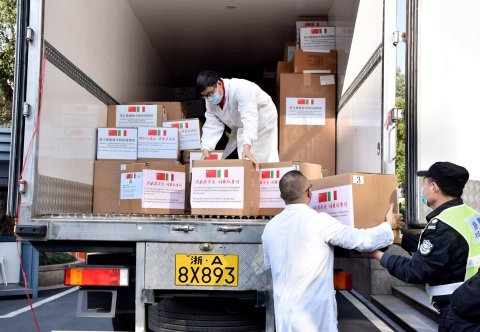
Medical supplies sent by China to help Italy during the pandemic were part of a propaganda effort. Xinhua/Zheng Mengyu/Getty
In some ways, the U.S., at least until recently, has lagged in experiencing the more aggressive actions that other nations have documented and in exposing infractions, when discovered. That may have partly to do with Chinese tactics, which are more careful when aimed at the key "enemy," says Ho-fung Hung, the Johns Hopkins professor. Hung quotes a revolutionary saying by Mao Zedong to illustrate his point: "Mao said, 'gather your best forces, annihilate the enemy one by one.' Don't take on the core first, don't take on the toughest opponent first," Hung says. "Take on the smaller and weaker ones, like Australia, Canada, New Zealand, the UK. They have done that. The U.S. is the toughest nut to crack."
But there are signs that the U.S. is starting to take the threat more seriously. In July, the State Department shut China's Houston consulate over what it said was multi-year, persistent technology theft and political interference across a broad swathe of states in the south, southeast and southwest, home of many energy and medical businesses and advanced research. The Chinese government denies these activities.
While the U.S. government has not released many details of what happened, several interviewees described a pattern of espionage by diplomats at the consulate aimed at major cities in the area. "Say, you are a city manager and you have a giant medical industry, and you also have giant collaborative relationships with China, well, then that manager is dependent on China," said one official, who spoke on background. A Chinese diplomat might then feel free to place a phone call to the manager asking for a meeting with the state governor, or approval for a business project, or to oppose a motion criticizing China for human rights violations in Tibet, Xinjiang or Hong Kong. "It's very effective influence," the official said.
Protesters hold up signs and flags outside of the Chinese consulate in Houston, Texas, on July 24, 2020, after the US State Department ordered China to close it. Photo by MARK FELIX/AFP /AFP via Getty Images
"Houston was not chosen at random out of the consulates out there," said John C. Demers, an assistant attorney general in the Department of Justice, in an online event in August with the Center for Strategic & International Studies. The consulate had long been a center of nationwide activity to exert political pressure and extract technology for China, several persons interviewed for this story said. In a sign of the scale of activities, F.B.I. agents also conducted about "50 interviews in 30 different cities" across the U.S., with Chinese researchers suspected of working to extract technology—"just the tip of what was going on and what we were trying to disrupt," Demers said.
China's Magic Weapon
To help carry out its program of influence and interference in the U.S., China relies on what Xi calls the country's "magic weapon:" the party's "United Front" system led by a Communist Party division called the United Front Work Department.
This is "a network of party and state agencies responsible for influencing groups outside the party," both inside and outside China, as Alex Joske, a researcher on Chinese politics at the Australian Strategic Policy Institute, has written. Traditionally, outside China, the United Front has focused on overseas Chinese communities, appealing to their sense of ethnic loyalty to persuade them to "repay the motherland." Personal benefit is often involved, with the system offering business opportunities in exchange for good will and cooperation.
Read more
Groups that are part of the system often have innocuous-sounding names, like the Chinese Overseas Exchange Association. Running parallel to the United Front is the Chinese government's global network of "friendship associations," under the foreign ministry. The U.S. organizations with which these groups cultivate ties may have no idea of their CPC affiliation. Pompeo, for instance, pointed out that the Governors Association had co-sponsored a U.S.-China "Collaboration Summit" with a group called the Chinese People's Association for Friendship and Foreign Countries, which is, indirectly, tied to the United Front system. He asked the gathering, "How many of you made the link between that group and Chinese Communist Party officials?"
"The United Front is part of China's foreign policy, part of China's intelligence apparatus and runs interference," says Anne-Marie Brady, a professor of Chinese politics at the University of Canterbury in New Zealand. Tasks that it may be charged with include everything from making "friends" to outright espionage.
A government reception last month to commemorate the founding of the People’s Republic of China was organized in part by the United Front Work Department, which is responsible for influencing groups to view China and its goals favorably. Gao Jie/Xinhua/Getty
The Chinese government has frequently denied the Front's role in overseas influence and interference operations. Yet it allocates a large amount of money to its work, indicating it is a priority. The budget of the United Front system, both at home and abroad, was more than $2.6 billion in 2019, Ryan Fedasiuk of Georgetown University's Center for Security and Emerging Technology says. Nearly $600 million of that was earmarked for work aimed at overseas Chinese communities and foreigners, Fedasiuk calculates. The total budget outstripped the Chinese Foreign Ministry's, he found.
The United Front in Action
A three-day summit that took place in mid-October at the China Institute, a New York City non-profit, provides a classic example of how the United Front works. The event, titled "Finding Success in an Age of Crisis," promised to help participants figure out how to "achieve success in the face of strained U.S.-China relations and a volatile world."
The event featured an illustrious line-up of panelists from U.S. business, academia, technology, media, diplomacy and politics, including Rick Snyder, former governor of Michigan, and Stapleton J. Roy, a founder of the Wilson Center's Kissinger Institute. Yet what participants likely didn't know: Three of the four "knowledge partners" are directly or indirectly part of the United Front.
The Beijing-based Center for China & Globalization, a think tank, is one of them. The organization was co-founded by Wang Huiyao, who is also a deputy chairman of the Western Returned Students Association, a United Front Work Department group, according to Joske, who has documented Wang's multiple connections to the United Front. The other were the China General Chamber of Commerce USA and the China General Chamber of Commerce USA Chicago, both among the 600 or so American groups
Newsweek has linked to the CPC system.
Asked for comment, the China Institute replied that it "chose to engage with these organizations because of their large memberships and connection to the issues and topics that are a priority today. We wanted to ensure they were engaged in the conversation." In an emailed statement, the China General Chamber of Commerce–USA denied it was linked to the United Front system, saying it was "a non-profit and non-governmental organization representing Chinese enterprises in the U.S.," with a mission "to create value, generate economic growth, and enhance cooperation between the U.S. and Chinese business communities."
Importantly, members of the various groups identified by
Newsweek, most of them ethnic Chinese, may not be aware of the organization's ties to the China party-state. Individuals may join for a sense of community or a business opportunity. Despite that, the groups may compete to be close to the Chinese embassy and its consulates hoping to gain status and favors, says Yaqiu Wang, an analyst for Human Rights Watch in New York City. China's diplomatic system, in turn, connects through them to local Chinese-language communities.
Some groups assist in technology transfer—acquiring technology developed by U.S. companies for use by Chinese companies—a crucial goal of the party's influencing and interfering. The system also permeates the Chinese-language media in the U.S, shaping the information environment.
Newsweek has identified the following types of organizations as affiliated with the United Front throughout the U.S.: at least 83 Chinese hometown associations for immigrants from the same place in China; 10 "Chinese Aid Centers;" 32 Chambers of Commerce; 13 Chinese-language media brands; about half of the 70 associations for Chinese professionals in the U.S.; 38 organizations promoting the "peaceful reunification" of China and Taiwan; five "friendship organizations" and 129 other groups engaged in a range of activities such as education and culture. In addition, there are 265 Chinese Student and Scholar Associations for the approximately 300,000 Chinese students in the U.S. These are connected to CPC politics, often via Chinese diplomats, usually the education secretary in a consulate.
The groups were identified by evaluating crossover membership, regular joint activities, events indicating ideological alignment, high-level meetings that can only be obtained by being part of a CPC-trusted system and by crosschecking names, positions and cooperative events described in hundreds of Chinese-language government and party documents and Chinese state media reports as well as reports by the groups themselves. The level of influence and interference activity ranges from simple efforts to promote a positive view of China to outright espionage.
The latter was the case in late September, when a New York City policeman of Tibetan origin from China, a naturalized American citizen and army reservist, was arrested and charged with acting as an illegal agent of the Chinese government. His handler in the Chinese consulate in New York City worked for the China Association for Preservation and Development of Tibetan Culture, which is part of the United Front, according to charges laid out by the
Department of Justice. Allegedly the policeman spied on Chinese citizens living in the New York area to help assess their potential as intelligence sources and provided Chinese officials with access to the
NYPD through invitations to police events.
The Consulate General of The People's Republic of China in New York City. Photo by Bill Tompkins/Getty Images
Start digging, and the number of groups in the U.S. with ties to the United Front seem endless. The Committee of 100 (C100), a New York-based advocacy group for Americans of Chinese origin that was founded nearly 30 years ago with the help of Henry Kissinger, is another, according to multiple reports in Chinese-language media and United Front organizations. The website of the United Front Work Department in the Chinese city of Nanjing identifies U.S. businessman and C100 chairman H. Roger Wang as an honorary chairman of the Nanjing Overseas Friendship Association, which is a city-level branch of the United Front's global China Overseas Friendship Association.
Upon his election to the board in 2018, Wang talked enthusiastically about key CPC projects such as the Belt and Road Initiative, in which China committed to invest in infrastructure projects in nearly 70 countries. The U.S. did not join, seeing the initiative as an attempt by Beijing to project its power around the world. "There are so many areas that C100 can get actively involved in now, including the Belt and Road Initiative," Wang said in an interview with China Daily.
Xi Jinping has described C100 as a "friendly organization" and the group regularly meets with top Chinese leaders.
Asked for comment, Fulton Hou, a program associate at C100 emailed, "We firmly oppose any efforts by a foreign government or a political party—from China or elsewhere—to influence or undermine American society and democracy. Our dual mission is to promote the full participation of Chinese Americans in American life and to advance a constructive Sino-American dialogue."
Is there anything wrong with that? Not on the surface, but what's beneath the surface is harder to discern. "How to deal with China is a question everybody has to face," says Alvin Y.H. Cheung, a research fellow at NYU's U.S.-Asia Law Institute. "The relationship with the CPC is like any other relationship. You have to set boundaries."
Didi Kirsten Tatlow is a senior fellow at the German Council on Foreign Relations in Berlin and at Projekt Sinopsis in Prague, and a journalist who began reporting from China in 1995. Cheryl Yu contributed research for this story in the U.S.
Photo Illustration by Newsweek; Source images Getty
Update, 10/27, 6:45 a.m. ET: This story has been updated to include a response from the China General Chamber of Commerce–USA.

